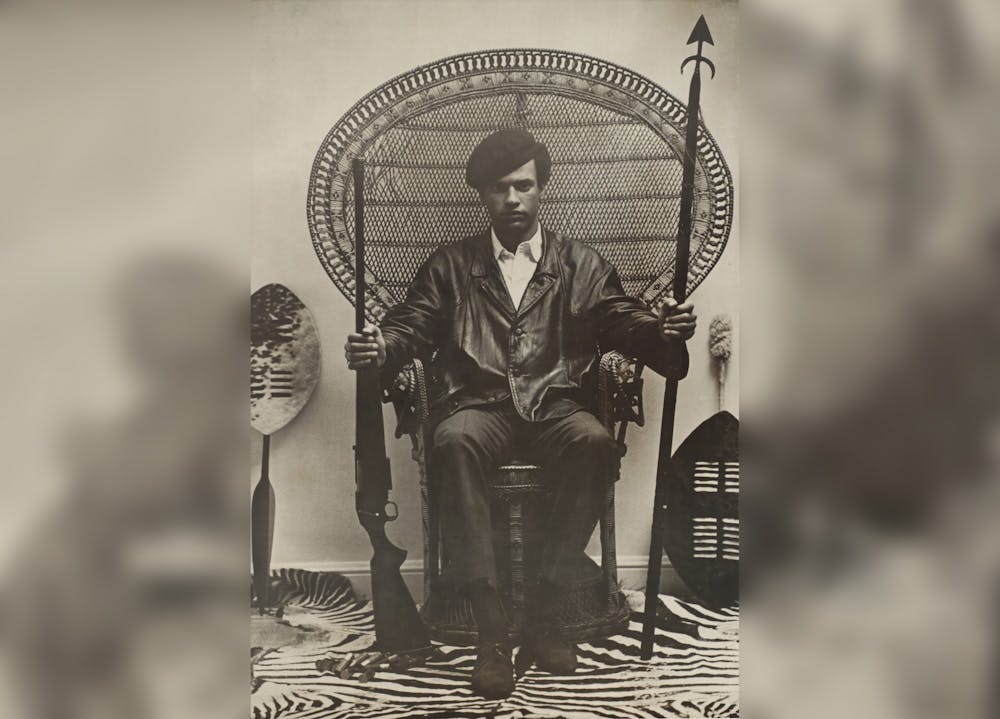Young people are often discounted in the world of politics. Our political interests historically have been ignored, partially due to low voter turnout among young people. Even now, the two major political parties are dueling over the amount of student debt that should be forgiven. One party proposes a Band-Aid to the student debt crisis; the other wants to poke at the wound.
When young people aren’t being ignored in politics, we’re belittled. We’re young, and so we must lack intelligence.
In this predicament as young people, where we are disregarded and disparaged, we should look to the Black Panthers for inspiration.
Huey P. Newton and Bobby Seale were college students when they formed the Black Panther Party for Self-Defense in 1966. Their first recruit was 16-year-old Bobby Hutton.
The Black Panther Party was a Marxist-Leninist organization dedicated not only to uplifting the Black community but to fundamentally changing American society. In their famous “Ten-Point Program,” wherein they outlined their beliefs and goals, the Panthers advocated for an immediate end to police brutality, for public housing and for socialism.
[Related: OPINION: She who struggles: Assata Shakur and the radical Black women who fought for civil rights]
The Panthers didn’t wait around every four years until they could vote for a new person to oppress them — they got to work. The party initially became notable for policing the police; openly armed Panthers would follow the police on their patrols in order to protect Black people from police violence. This, of course, led racist California lawmakers to ban the open carry of loaded firearms.
Beyond the militancy of the Panthers, the party also provided much-needed social services for poor Black people. Among these were Free Breakfast for Children programs, which fed tens of thousands of hungry children across the country.
Additionally, the party established free health clinics which provided, among other things, screening tests for sickle cell anemia, a disease which disproportionately affects Black people. The people who worked these clinics were often students.
And that last fact cannot be stressed enough. The Panthers proved that young people have the capacity to be serious about politics and to make a positive impact on the world.
Fred Hampton — the subject of the fairly-recent, popular movie “Judas and the Black Messiah” — was 21 years old at the time of his murder at the hands of police, the same age as me. What he was able to achieve in his short life both inspires me and tempers my ego. I ask myself, “What have I done to make the world better?” when I read about his life.
[Related: OPINION: A world to win: What it means to be a young, American socialist]
Hampton was the deputy chairman of the Illinois chapter of the party, and he helped launch free breakfast programs and health clinics in Chicago. He was also instrumental in the formation of the “Rainbow Coalition” which consisted of the Panthers along with white and Puerto Rican organizations. Hampton, during a time of intense racial hostility, was able to unite working class people of all races in order to combat capitalist exploitation and police brutality.
If young people are committed to anti-racism, and we should be, then the Rainbow Coalition is a perfect example of the kind of movement that is needed to fight racism: a working-class movement.
“Never convinced that destroying capitalism would automatically destroy racism, I felt, however, that we could not destroy racism without wiping out its economic foundation,” Huey Newton, the co-founder of the Party, wrote in his autobiography “Revolutionary Suicide.”
And so, many of the problems the young people in the Black Panther Party were fighting against — police brutality, poverty, racism, inequality — are the same problems young people are facing today. Young people should now pick up where the Panthers left off in their struggle against the many inequities in the United States. The Panthers didn’t wait until they were older; neither should we.
Jared Quigg (he/him) is a junior studying journalism and political science.




